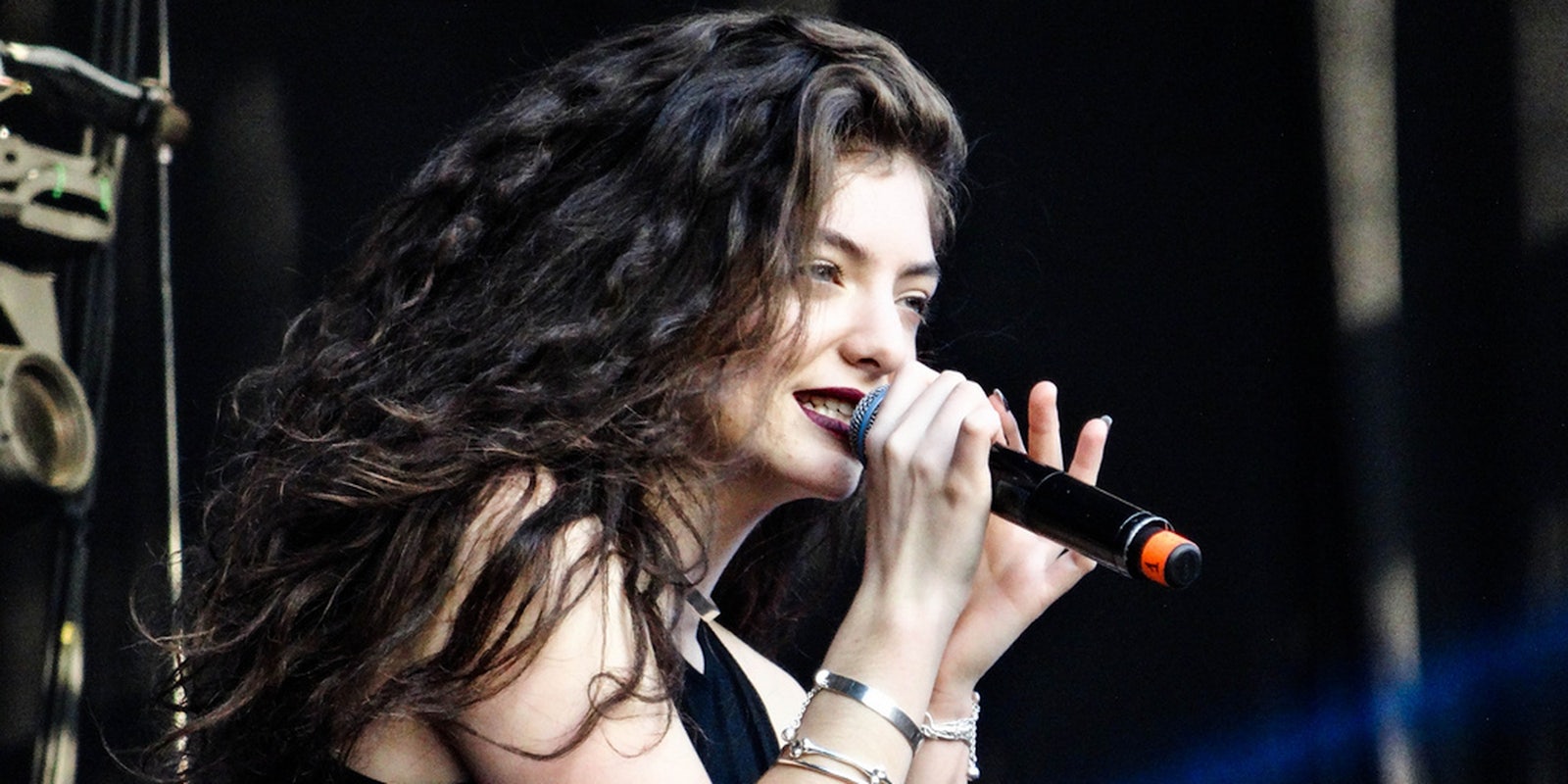Seventeen-year-old singer Lorde recently used Twitter to call out and criticize photographer Simon Runting, who is infamous among celebrities for his intrusive efforts to take pictures of them. “This man has been stalking me, photographing me and refusing me privacy,” she tweeted. “I am scared of him…This should not be an accepted standard for young women or anyone in this industry.”
It’s easy to dismiss the paparazzi’s harassment of famous women. After all, they’re usually incredibly privileged. Their lives are—or seem—enviable. Their complaints about being followed and photographed constantly sound to many people like humblebrags.
You’ve probably heard (or perhaps made) these common excuses people make about harassment of celebrity women:
- “If she didn’t want it, she shouldn’t have become famous.”
- “She should take it as a compliment that people want photos of her.”
- “Yeah, right, I bet she secretly likes the attention.”
- “It’s not a big deal, she should just ignore the paparazzi.”
- “Well, I’d love to be famous and get photographed all the time.”
What do these justifications remind you of?
- “If she didn’t want it, she shouldn’t have gone out wearing a revealing dress.”
- “She should take it as a compliment that guys on the street tell her she’s hot.”
- “Yeah, right, I bet women secretly love getting hit on.”
- “It’s not a big deal, she should just ignore the catcalls.”
- “Well, I’d love it if women hit on me on the street.”
That second set is what women often hear when they speak out about catcalling and sexual harassment. It should be clear that these are all variations on a theme: some women do things that make them deserve harassment. Women should take it as a compliment that men violate their space and their sense of safety and privacy. Women may say that harassment feels violating—but deep down they like it. Women shouldn’t let the harassment get to them; it’s just a part of life. They don’t know how good they have it.
There are differences, of course. Photos of celebrity women produce money and fame for the photographer, whereas a guy who gets off on sexually harassing ordinary women on the street gets only his own twisted satisfaction.
But in both cases, both the harassment and the subsequent justifications for it stem from the fact that women and their bodies are still seen by many people and in many cases as commodities.
Things that would be considered extremely inappropriate when put in general terms (e.g. “stalking strangers to take their picture” or “yelling at strangers in a threatening manner”) suddenly become acceptable to many people once the target is specified as a woman that people (especially men) enjoy looking at, and once the behavior is specified as being motivated in some way by sexuality or by an appreciation for the woman’s appearance.
With celebrities, as with ordinary women walking down the street, public actions are presumed to be intended for our consumption. If a woman is wearing a pretty dress outside, she must be doing it to get attention from men. If a celebrity is walking her dog, she must be doing it to get attention from her fans. If they didn’t want attention, they shouldn’t have gone out in public.
Male celebrities face intrusion by paparazzi, too, but not quite to the same extent. We don’t scrutinize men’s bodies the way we do women’s, and a famous man’s body will never be splashed on a tabloid cover with the headline, “Top 10 Worst Swim Trunk Bodies of the Season!” (If it ever is, by the way, I suppose we can consider that equality but not justice.)
Most celebrities, of course, do certain things that they intend for others to pay attention to and appreciate: they make music, act in films, model clothing, or play sports, for instance. But the paparazzi, as well as their defenders, assume that a person who becomes famous by doing one of those things must also be prepared to offer up the entirety of their life, public and private, for an audience’s entertainment. If they’re not prepared to do so, well, they shouldn’t have succeeded at whatever it is they love to do.
This doesn’t seem like a fair sacrifice to ask anyone to make. There mere fact that a person is famous does not turn them into a superhuman with no need for privacy, safety, or common decency. It is wrong to make an ordinary, non-famous person feel as unsafe and violated as Lorde must have felt when she decided to make those tweets.
Why does fame suddenly make it okay?
The ways in which people justify stalking and harassment of female celebrities seem especially callous and cruel when you consider how similar they sound to justifications for stalking and harassing ordinary women like me. Fame may entail certain responsibilities as well as certain privileges, but accepting constant, threatening intrusions into one’s space should not be one of them.
Photo via Constanza.CH/Flickr (CC BY 2.0)


